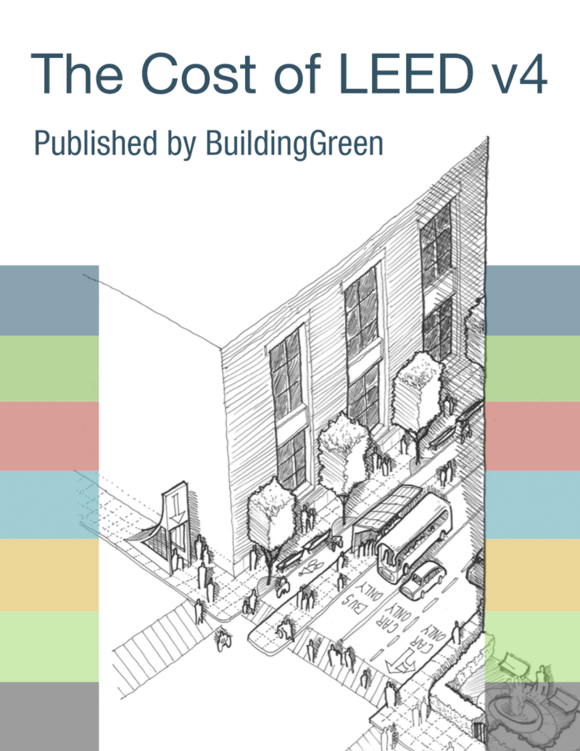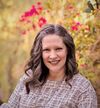LEEDuser’s viewpoint
Frank advice from LEED experts
LEED is changing all the time, and every project is unique. Even seasoned professionals can miss a critical detail and lose a credit or even a prerequisite at the last minute. Our expert advice guides our LEEDuser Premium members and saves you valuable time.
Credit language

© Copyright U.S. Green Building Council, Inc. All rights reserved.
Requirements
Choose one of the following options:
Option 1. Nonroof and Roof (2 points except Healthcare, 1 point Healthcare)
Meet the following criterion: Alternatively, an SRI and SR weighted average approach may be used to calculate compliance. Use any combination of the following strategies. Nonroof measures- Use the existing plant material or install plants that provide shade over paving areas (including playgrounds) on the site within 10 years of planting. Install vegetated planters. Plants must be in place at the time of occupancy permit and cannot include artificial turf.
- Provide shade with structures covered by energy generation systems, such as solar thermal collectors, photovoltaics, and wind turbines.
- Provide shade with architectural devices or structures. If the device or structure is a roof, it shall have an aged solar reflectance (SR) value of at least 0.28 as measured in accordance with ANSI/CRRC S100. If the device or structure is not a roof, or if aged solar reflectance information is not available, it shall have at installation an initial SR of at least 0.33 as measured in accordance with ANSI/CRRC S100.
- Provide shade with vegetated structures.
- Use paving materials with an initial solar reflectance (SR) value of at least 0.33.
- Use an open-grid pavement system (at least 50% unbound).
Table 1. Minimum solar reflectance index value, by roof slope
|
Slope |
Initial SRI |
OR |
Aged SRI |
|---|---|---|---|---|
Low-sloped roof |
≤ 2:12 |
82 |
|
64 |
Steep-sloped roof |
> 2:12 |
39 |
|
32 |
Option 2. Parking under Cover (1 point)
Place a minimum of 75% of parking spaces under cover. Any roof used to shade or cover parking must (1) have an aged SRI of at least 32 (if aged value information is not available, use materials with an initial SRI of at least 39 at installation), (2) be a vegetated roof, or (3) be covered by energy generation systems, such as solar thermal collectors, photovoltaics, and wind turbines. The credit calculations must include all existing and new off-street parking spaces that are leased or owned by the project, including parking that is outside the project boundary but is used by the project. On-street parking in public rights-of-way is excluded from these calculations. See all forum discussions about this credit »What does it cost?
Cost estimates for this credit
On each BD+C v4 credit, LEEDuser offers the wisdom of a team of architects, engineers, cost estimators, and LEED experts with hundreds of LEED projects between then. They analyzed the sustainable design strategies associated with each LEED credit, but also to assign actual costs to those strategies.
Our tab contains overall cost guidance, notes on what “soft costs” to expect, and a strategy-by-strategy breakdown of what to consider and what it might cost, in percentage premiums, actual costs, or both.
This information is also available in a full PDF download in The Cost of LEED v4 report.
Learn more about The Cost of LEED v4 »Frequently asked questions
See all forum discussions about this credit »Addenda
SSp Construction Activity Pollution Prevention
"To reduce pollution from construction activities by controlling soil erosion, waterway sedimentation, and airborne dust that disproportionately impact frontline communities."
SSc Site Assessment
"To assess site conditions, environmental justice concerns, and cultural and social factors, before design to evaluate sustainable options and inform related decisions about site design."
SSc Rainwater Management
"To reduce runoff volume and improve water quality by replicating the natural hydrology and water balance of the site, based on historical conditions and undeveloped ecosystems in the region to avoid contributing to flooding downstream in frontline communities."
SSc Heat Island Reduction
"To minimize inequitable effects on microclimates and human, especially frontline communities, and wildlife habitats by reducing heat islands."
SSc Places of Respite
"To provide patients, all staff, and visitors with the health benefits of the natural environment by creating outdoor places of respite on the healthcare campus."
SSc Direct Exterior Access
"To provide patients, all staff, and visitors with the health benefits of the natural environment by creating outdoor places of respite on the healthcare campus."
"Roof area that consists of functional, usable spaces (such as helipads, recreation courts, and similar amenity areas) may meet the requirements of nonroof measures. Applicable roof area excludes roof area covered by mechanical equipment, solar energy panels, skylights, and any other appurtenances."
Can v4 projects use typical solar reflectance (SR) values, or data from a previous project, for documentation of hardscape materials?
The following typical SR values can be used for standard nonroof materials, in lieu of project-specific testing data:
Typical Solar Reflectance Values for Standard Nonroof Materials
Gray cement concrete- Initial Solar Reflectance: 0.26, Three-Year Aged Solar Reflectance*: 0.18
White cement concrete- Initial Solar Reflectance: 0.70, Three-Year Aged Solar Reflectance*: 0.35
Asphalt concrete- Initial Solar Reflectance: 0.05, Three-Year Aged Solar Reflectance*: 0.10
*Three-year aged SR values are based on no cleaning.
Alternatively, documentation showing that the current concrete mix and sealant are equivalent to a tested mix and sealant from a previous project is acceptable, provided that all ingredients are the same and have not changed.
Documentation toolkit
The motherlode of cheat sheets
LEEDuser’s Documentation Toolkit is loaded with calculators to help assess credit compliance, tracking spreadsheets for materials, sample templates to help guide your narratives and LEED Online submissions, and examples of actual submissions from certified LEED projects for you to check your work against. To get your plaque, start with the right toolkit.
Get the inside scoop
Our editors have written a detailed analysis of nearly every LEED credit, and LEEDuser premium members get full access. We’ll tell you whether the credit is easy to accomplish or better left alone, and we provide insider tips on how to document it successfully.

© Copyright U.S. Green Building Council, Inc. All rights reserved.
Requirements
Choose one of the following options:
Option 1. Nonroof and Roof (2 points except Healthcare, 1 point Healthcare)
Meet the following criterion: Alternatively, an SRI and SR weighted average approach may be used to calculate compliance. Use any combination of the following strategies. Nonroof measures- Use the existing plant material or install plants that provide shade over paving areas (including playgrounds) on the site within 10 years of planting. Install vegetated planters. Plants must be in place at the time of occupancy permit and cannot include artificial turf.
- Provide shade with structures covered by energy generation systems, such as solar thermal collectors, photovoltaics, and wind turbines.
- Provide shade with architectural devices or structures. If the device or structure is a roof, it shall have an aged solar reflectance (SR) value of at least 0.28 as measured in accordance with ANSI/CRRC S100. If the device or structure is not a roof, or if aged solar reflectance information is not available, it shall have at installation an initial SR of at least 0.33 as measured in accordance with ANSI/CRRC S100.
- Provide shade with vegetated structures.
- Use paving materials with an initial solar reflectance (SR) value of at least 0.33.
- Use an open-grid pavement system (at least 50% unbound).
Table 1. Minimum solar reflectance index value, by roof slope
|
Slope |
Initial SRI |
OR |
Aged SRI |
|---|---|---|---|---|
Low-sloped roof |
≤ 2:12 |
82 |
|
64 |
Steep-sloped roof |
> 2:12 |
39 |
|
32 |
Option 2. Parking under Cover (1 point)
Place a minimum of 75% of parking spaces under cover. Any roof used to shade or cover parking must (1) have an aged SRI of at least 32 (if aged value information is not available, use materials with an initial SRI of at least 39 at installation), (2) be a vegetated roof, or (3) be covered by energy generation systems, such as solar thermal collectors, photovoltaics, and wind turbines. The credit calculations must include all existing and new off-street parking spaces that are leased or owned by the project, including parking that is outside the project boundary but is used by the project. On-street parking in public rights-of-way is excluded from these calculations.In the end, LEED is all about documentation. LEEDuser’s Documentation Toolkit, for premium members only, saves you time and helps you avoid mistakes with:
- Calculators to help assess credit compliance.
- Tracking spreadsheets for materials purchases.
- Spreadsheets and forms to give to subs and other team members.
- Guidance documents on arcane LEED issues.
- Sample templates to help guide your narratives and LEED Online submissions.
- Examples of actual submissions from certified LEED projects.


